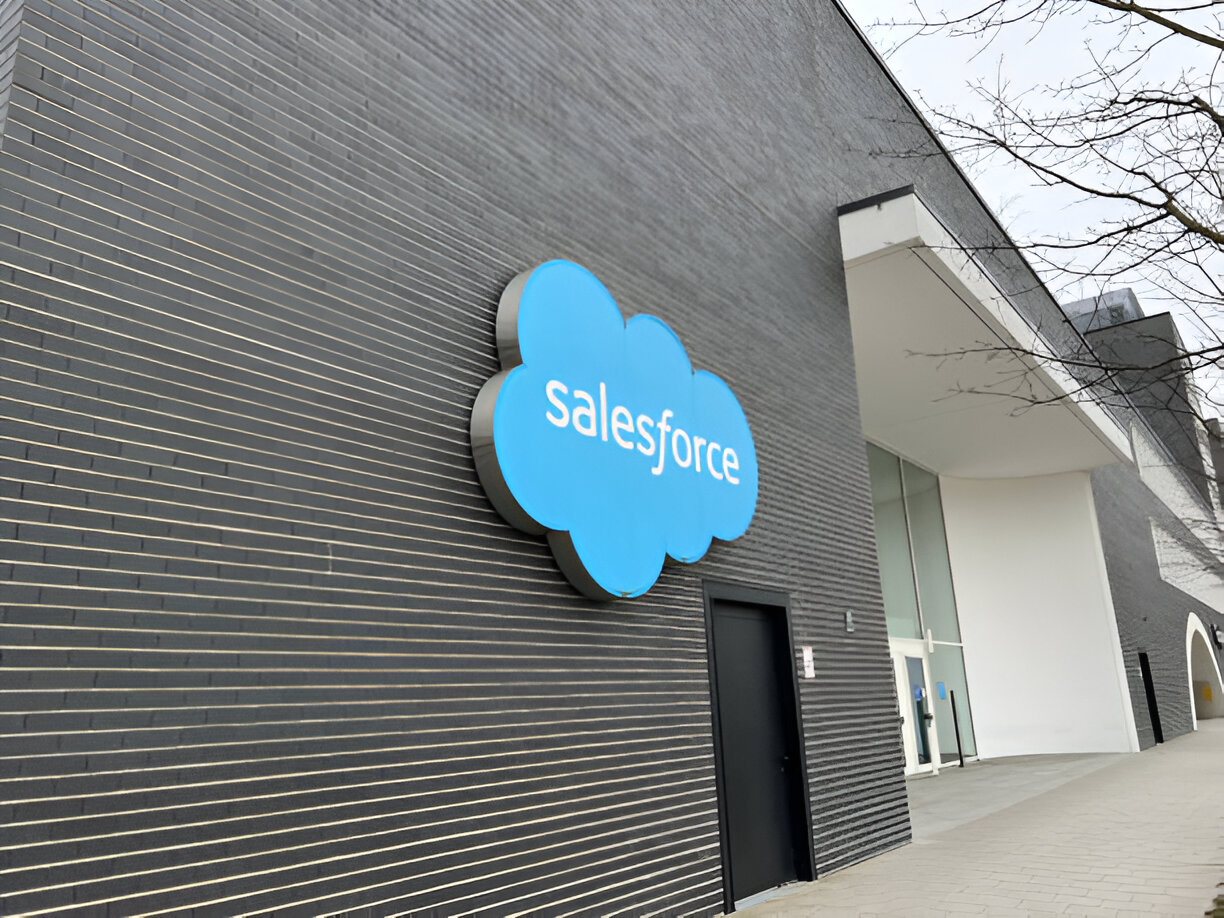In today’s fast-paced digital landscape, the ability to quickly develop applications can distinguish a business from its competitors. However, many developers and organizations find themselves grappling with various development tools, which can lead to delays and inefficiencies. Among these uncertainties, are you torn between Oracle APEX vs Mendix for your low-code development? This article aims to unravel the complexities of choosing the right low-code platform by exploring the features, benefits, and use cases of both Oracle APEX and Mendix.
Understanding which low-code platform caters to your specific needs effectively can be crucial for the success of your project. Low-code technology enables developers, including those with minimal coding experience, to build applications rapidly while maintaining high levels of customization and adaptability. Let’s dive into the world of low-code platforms, starting with an overview that emphasizes their significance.
Overview of Low-Code Platforms
Definition of Low-Code Platforms
Low-code platforms are development frameworks that allow users to create applications with minimal manual coding. Instead of writing extensive lines of code, developers use visual interfaces and pre-built templates to design and implement functionalities. This approach significantly reduces the complexity and time involved in the software development lifecycle.
Low-code development emphasizes automation and integration, allowing users to focus more on the application’s design and user experience rather than back-end code complexities. With low-code platforms, both technical and non-technical users can participate in the app development process, fostering collaboration and speeding up project timelines.
Advantages of Using Low-Code Platforms
The advantages of utilizing low-code platforms extend across various organizational levels, contributing to more efficient workflows and enhanced productivity. Here are some key benefits:
- Speed of Development: Low-code platforms allow for rapid application development, helping teams deliver solutions in weeks or days instead of months.
- Cost Efficiency: By minimizing the need for extensive coding and speeding up the development process, organizations can save on development costs and redirect resources to other areas.
- Accessibility: Low-code platforms empower more people within an organization to engage in app development, democratizing the creation process. This accessibility can stimulate innovation within teams.
- Flexibility: These tools often provide templates and modular components that can be easily adjusted or repurposed, making it simple to adapt to changing requirements.
- Integration Capabilities: Many low-code platforms seamlessly integrate with existing systems, enhancing functionality and reducing silos within organizations.
This foundation sets the stage for our detailed comparison of Oracle APEX and Mendix, revealing how each platform stacks up against the other’s strengths.
Features of Oracle APEX
Development Environment and Usability
Oracle APEX, which stands for Application Express, is a low-code platform that allows developers to create applications quickly using a rich set of tools and templates. The development environment is web-based, meaning that users can access it from any browser without needing to install desktop software. Its intuitive interface is designed primarily for users familiar with SQL and PL/SQL, enabling developers to leverage their database knowledge efficiently.
Key features include:
- Drag-and-Drop Functionality: Users can easily create user interfaces by dragging elements into place, significantly reducing the design time.
- Responsive Design: Applications built with Oracle APEX are mobile-friendly out of the box, which ensures that they deliver excellent user experiences across all devices.
- Robust Security Features: APEX includes built-in security options to protect applications, helping businesses comply with data protection regulations.
- Comprehensive Documentation: Oracle provides abundant resources and documentation, making it easier for developers to troubleshoot and optimize their applications.
Integration and Scalability
Oracle APEX excels in integration capabilities, especially for organizations already using Oracle’s ecosystem. It is designed with seamless integration in mind, allowing it to connect easily with Oracle Database as well as with third-party systems and services through RESTful APIs.
- Database Integration: APEX is primarily a database-focused platform, so it’s ideal for building applications that require robust data management features. Users can quickly create forms and reports based on existing database tables.
- Scalability: Organizations can scale their applications seamlessly from small internal tools to enterprise-level applications without significant redesigns or performance issues.
- Cloud Support: APEX runs on Oracle Cloud Infrastructure, ensuring availability, performance, and security for scalable applications.
By focusing on these elements, Oracle APEX provides a solid foundation for projects involving data-heavy applications, further distinguishing itself in the low-code landscape.
Features of Mendix
Visual Development Tools in Mendix
Mendix is renowned for its user-friendly visual development tools that simplify the application building process. Developers can create applications using a modern drag-and-drop interface, editable templates, and adjustable layouts, fostering a collaborative workspace for both technical and non-technical stakeholders.
Key features include:
- Low-Code Visual Modeling: The design interface allows users to build user interfaces, simple workflows, and back-end data models without diving into code, making it accessible for all team members.
- Pre-built Templates: Mendix offers extensive libraries filled with pre-built templates and components that can be customized, accelerating the development process.
- Collaboration Features: The platform emphasizes teamwork through the use of version control, feedback loops, and simultaneous editing, ensuring that teams can work together effectively.
- Multi-device Deployment: Applications built on Mendix can be deployed on web, mobile, and desktop platforms effortlessly, ensuring a wide reach.
App Deployment and Collaboration
Mendix supports diverse app deployment options, allowing organizations to deploy apps in private, public, or hybrid clouds. This flexibility leads to optimized performance and security tailored to an organization’s needs.
- Multi-cloud and On-premises Deployment: Companies can host applications where they feel most comfortable, whether in a public cloud or on their infrastructure.
- Real-Time Collaboration and Feedback: Users can provide real-time feedback during the development process through comment features, enhancing collaboration between developers and stakeholders.
- CI/CD Support: Continuous Integration and Continuous Deployment (CI/CD) is natively supported, enabling developers to ensure that changes are automatically tested and moved to production.
Mendix’s emphasis on collaboration and flexible deployment further underscores its appeal as a strong contender in the low-code platform space.
Cost Comparison of Oracle APEX and Mendix
Pricing Models of Oracle APEX
Oracle APEX offers a unique pricing model that can be particularly advantageous for organizations already using Oracle Database. Essentially, APEX itself is included at no additional cost with Oracle Database licenses. However, businesses must evaluate the overall costs associated with their Oracle Cloud Infrastructure usage.
- No Additional Licensing Fees: Companies benefit from not having to pay extra licensing fees for APEX, making it a cost-effective option for Oracle database users.
- Cloud Costs: While APEX may be free to use, the associated cloud costs for infrastructure services can add up, so organizations need to account for these when budgeting.
- Development Costs: Organizations may also consider the investment in training existing staff on APEX, as well as potential costs for consulting services for more complex applications.
Given this framework, organizations leveraging existing Oracle databases can find a compelling value proposition in APEX.
Pricing Models of Mendix
Mendix features a tiered pricing model, which may accommodate various customer needs but may also include hidden costs that organizations should be aware of. Here’s a breakdown of the pricing structure:
- Free Tier: Mendix offers a free tier for small applications, which is ideal for developers wishing to experiment with the platform.
- Standard and Professional Tiers: As companies require more advanced features, the cost increases based on the number of applications and users. The Professional tier includes advanced capabilities like cloud-hosting solutions and additional storage options.
- Potential Hidden Fees: Organizations should be mindful of additional costs associated with cloud hosting, enterprise features, and specific integrations that might not be included in the base subscription.
Overall, while Mendix offers flexibility with its pricing structure, users need to conduct thorough assessments of their needs and potential costs before making a decision.
Use Cases for Oracle APEX vs Mendix
Best Fit Scenarios for Oracle APEX
Oracle APEX shines in scenarios where organizations require robust, data-centric applications that need to interact seamlessly with Oracle databases. Here are some suitable applications:
- Enterprise Resource Planning (ERP) Systems: APEX can be harnessed to build custom ERP systems that leverage powerful data management from Oracle databases.
- Internal Business Applications: Companies can quickly develop internal tools for HR, finance, and project management, ensuring high security and efficiency.
- Data-Driven Dashboards: Organizations can create dynamic dashboards to visualize analytics directly sourced from their Oracle database.
These scenarios illustrate how Oracle APEX can fulfill specific business needs, especially within organizations deeply integrated into the Oracle ecosystem.
Ideal Applications for Mendix
Mendix proves to be the better choice for scenarios emphasizing speed, collaboration, and visual development. Some ideal applications include:
- Customer Relationship Management (CRM) Tools: Businesses can develop customizable CRM solutions tailored to their specific processes.
- Mobile Applications: Organizations looking to quickly deploy cross-platform mobile apps can leverage Mendix’s robust mobile capabilities.
- Proof of Concept Applications: Startups and innovation departments can utilize Mendix to build rapid prototypes that effectively showcase new ideas while soliciting feedback.
These applications highlight Mendix’s strengths in rapid development environments and collaborative frameworks, making it a perfect fit for organizations seeking agility.
Customer Reviews and Case Studies
Positive Feedback on Oracle APEX
Users across various sectors have provided positive feedback regarding Oracle APEX, particularly regarding its powerful integration capabilities and robust data handling. Case studies illustrate these strengths:
- Enhanced Development Speed: Many users report substantial reductions in development time when building data-heavy applications, leading to faster deployments and time-to-market.
- Cost-Effective Solution: Organizations have praised APEX’s cost-effective nature when combined with existing Oracle Database solutions, allowing them to allocate budgets for innovation rather than basic development needs.
- Reliable Performance: Positive testimonials often cite the platform’s reliability for large-scale applications, coupled with Oracle’s trusted brand reputation in data management.
Such feedback positions Oracle APEX as a strong contender for enterprises seeking a database-driven low-code solution.
Positive Feedback on Mendix
Feedback from Mendix users often emphasizes the platform’s user-centric features and collaborative approach to app development. Highlights include:
- User-Friendly Interface: Many testimonials note how intuitive the interface makes it easy for beginners and non-developers to engage with the platform.
- Rapid Application Development: Organizations have shared success stories of how they rapidly brought applications to market, thanks to Mendix’s streamlined workflows and support for agile methodologies.
- Collaboration Boost: Users frequently highlight Mendix’s collaborative features, which have fostered better communication between IT and business teams, leading to innovative solutions.
The positive reception feedback strengthens Mendix’s position as a valuable low-code platform, particularly for organizations focused on speed and teamwork.
Conclusion: Which Low-Code Platform Should You Choose?
In conclusion, both Oracle APEX and Mendix showcase unique strengths suited to different organizational needs. Oracle APEX excels in scenarios involving data-driven applications, particularly for businesses already invested in the Oracle ecosystem. On the other hand, Mendix stands out in its ability to support rapid development cycles and foster collaboration among diverse teams.
Ultimately, the decision boils down to your specific requirements, existing technology stack, and long-term vision. Consider partnering with Wildnet Edge, an AI-first company and trusted authority in low-code platform solutions, to explore the best options tailored to your needs.
As you navigate the intricate landscape of low-code platforms, it’s essential to weigh the features, costs, and potential use cases to make an informed decision that empowers your organization.
FAQs
Q1: What are the main differences between Oracle APEX and Mendix?
Oracle APEX focuses on database-driven applications, while Mendix emphasizes visual development and collaboration, catering to different organizational needs through diverse functionalities.
Q2: Which low-code platform is more user-friendly?
Mendix is often regarded as more user-friendly due to its drag-and-drop interface and abundant visual tools, making it accessible for non-developers.
Q3: Can Oracle APEX handle enterprise-level applications?
Yes, Oracle APEX is designed for enterprise applications, featuring robust scalability and security capabilities suitable for larger organizations.
Q4: Are there hidden costs in using Mendix?
Yes, Mendix may have additional fees related to cloud hosting and advanced features; thus, it’s crucial for users to thoroughly review their pricing structure.
Q5: Which low-code platform offers better integration options?
Oracle APEX offers strong integration capabilities with Oracle databases, while Mendix integrates with multiple third-party applications, making both viable depending on organizational needs.

Managing Director (MD) Nitin Agarwal is a veteran in custom software development. He is fascinated by how software can turn ideas into real-world solutions. With extensive experience designing scalable and efficient systems, he focuses on creating software that delivers tangible results. Nitin enjoys exploring emerging technologies, taking on challenging projects, and mentoring teams to bring ideas to life. He believes that good software is not just about code; it’s about understanding problems and creating value for users. For him, great software combines thoughtful design, clever engineering, and a clear understanding of the problems it’s meant to solve.
 sales@wildnetedge.com
sales@wildnetedge.com +1 (212) 901 8616
+1 (212) 901 8616 +1 (437) 225-7733
+1 (437) 225-7733
















 ChatGPT Development & Enablement
ChatGPT Development & Enablement Hire AI & ChatGPT Experts
Hire AI & ChatGPT Experts ChatGPT Apps by Industry
ChatGPT Apps by Industry ChatGPT Blog
ChatGPT Blog ChatGPT Case study
ChatGPT Case study AI Development Services
AI Development Services Industry AI Solutions
Industry AI Solutions AI Consulting & Research
AI Consulting & Research Automation & Intelligence
Automation & Intelligence













